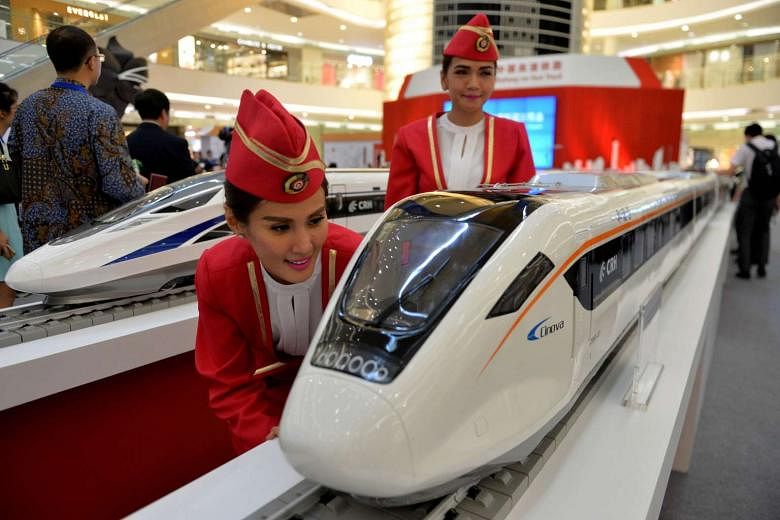In a fiercely contested race between Japan and China to build a high-speed railway in Indonesia, Japan lost. The project in question is to build a railway system connecting Jakarta and Bandung, a distance of 140km, with trains running at speeds over 300kph.
The project proposed by Japan would have financed most of the estimated total project cost of about ¥540 billion (S$6.3 billion) with the use of yen loans, requiring a loan guarantee from the Indonesian government.
Japan had initially led China in bidding for the project by, for instance, conducting a feasibility study starting as early as around 2008.
The actions taken by the Indonesian government were problematic. In early September, Jakarta announced it would review its railway project, and would not adopt either the Japanese or Chinese proposals. Yet, less than a month later, the government reversed its policy and adopted the Chinese proposal.
The Indonesian government chose the Chinese proposal as Beijing accepted Jakarta's conditions that the government be free from any fiscal spending or loan guarantee for the project.
It was understandable for Chief Cabinet Secretary Yoshihide Suga to strongly express the Japanese government's dissatisfaction, saying, "It's important for a large-scale infrastructure project to be implemented in a transparent and fair manner."
It is vital to examine the decision-making process taken by the Indonesian government.
A Chinese Foreign Ministry spokesperson engaged in self-praise by saying China enjoys great superiority over Japan in regard to loan conditions and work periods.
China may have hinted at extending financial assistance to the project through the China-led Asian Infrastructure Investment Bank and the Silk Road Fund, a state-owned investment fund of the Chinese government.
Many people are skeptical about the feasibility of the Chinese proposal, which promises to complete the construction of the railway system in three years.
It is a matter of concern that the Indonesian government's lax judgment over its adoption of the Chinese proposal may come into question again.
Behind China's fierce export drive is the excessive production capacity of its high-speed railway industry.
The country has built a 16,000-km high-speed railway network in a matter of 10 years, more than six times longer than Japan's Shinkansen bullet train network.
A surplus of rolling stock, railway facilities and workers is likely to continue for some time.
Japan should keep an eye on China in the days ahead, as it is a country that has to enter overseas markets regardless of whether it profits or not.
The administration of Prime Minister Shinzo Abe considers the export of infrastructure development as one of the central pillars of its growth strategy and has focused on marketing such projects through cooperation between the public and private sector.
In particular, railway projects are considered promising in this respect, with demand expected to grow worldwide.
Japan hopes to win orders from such countries as Malaysia and the United States in the days ahead.
On the basis of its defeat in its bidding for the Indonesian project, Japan will need to rebuild its export strategy urgently.
Japan has conventionally promoted the safety and the technological prowess of its high-speed railway system, Japan's strongpoints in this sector.
In addition, it will also become important for Japan to understand, more precisely than before, what its trading partner needs.
If Japan wants to win orders, it will be necessary to put more effort into presenting proposals as a package that includes traffic control systems and maintenance and checkups, rather than merely undertaking the design and construction of projects.
Extending cooperation in the fostering of technical personnel will also prove effective.
The Yomiuri Shimbun is a member of The Straits Times media partner Asia News Network, a grouping of 22 newspapers seeking to promote coverage of Asian affairs.

